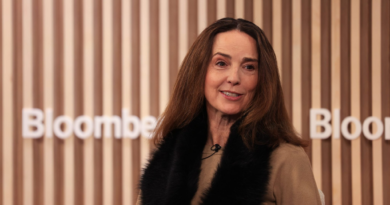Gen Zers are most likely to lie about who they’re voting for
As the U.S. presidential election looms, some Gen Zers might be walking around as a liar, liar, (with their) pants on fire.
So finds Axios in its poll of more than 1,800 registered voters, conducted by the Harris Poll between October 22 and 24. Almost a quarter (23%) of respondents across generations say they have lied to someone close to them about who they’re voting for, but that number is highest among Gen Z—at 48%. The number of fibbers decreases as respondents age, at 38% of millennials, 17% of Gen Xers, and 6% of boomers.
A veil of secrecy shrouds what has been deemed one of the closest elections in modern history. More than half (58%) of respondents say their vote is a private matter.
“There’s a new privacy emerging here, where it’s far more convenient to either lie or not talk about it,” John Gerzema, CEO of the Harris Poll, told Axios, pointing to prevalent polarization, a fear of post-election unrest, and younger generation’s desire to not engage in in-person conflict.
Lying tends to crop up when there’s someone to lie to. In other words, mixed company and increased polarization might increase the likelihood that someone feels like they need to bluff. A third of respondents say they’re not close to family members because of their different political beliefs. That increases to 47% of millennials and 44% of Gen Zers.
Despite some young adults staying secretive, many vocally oppose those who disagree with them. True to Gen Zers’ reputation, a TikTok trend has cropped up where voters joke that they’re “canceling out” their family members’ votes.
Gen Z’s gender divide
Men are almost twice as likely to lie about their vote than women, at 30% and 17%, respectively. It’s unclear who they’re lying to and why.
But at the same time, a widely reported gender gap in younger generations is at play. While the verdict is still out, data from Gallup covered by the Financial Times found that men in the U.S., Germany, and South Korea are becoming increasingly conservative. Women, on the other hand, are becoming more liberal—by a gap of 30 percentage points in the U.S.
Pointing to the impact of #MeToo as women spoke out against long-standing abuse and sexism, the Times’ John Burn-Murdoch notes there’s a “clear progressive-vs-conservative divide on sexual harassment.” Young women are also more liberal than men when it comes to their stance on immigration and racial justice, Burn-Murdoch adds.
While much has been said about polarization in a two-party system, Republicans have actually moved further right than Democrats have to the left, according to a separate Gallup survey of Congress members. In this cycle, abortion rights are a key part of the ballot after the overturn of Roe v. Wade—which was passed in the 1970s. That’s all to say, women are likely moving left as their politicians and male peers move to the right at an unprecedented pace.
Even with the gender divide, there is at least one thing Gen Zers can agree on: From both sides, young people want their government to address critical issues, like climate change, economic inequality, and democracy’s future. They feel a sense of fatalism at their politicians’ failure to do so, according to two studies from UC Berkeley researchers.
While vocal, Gen Z is most quiet at work
The most junior working generation is also the least likely to talk to coworkers about politics and most likely to feel uncomfortable doing so out of all generations, according to Gallup.
It’s perhaps surprising given Gen Z’s reputation of being a more radical and vocal generation, but not unexplainable.
“It could be that younger workers are newer to the workforce and less comfortable speaking freely,” Katelyn Hedrick, a co-author of the Gallup analysis, told Fortune.
“They are getting acclimated, forming relationships with people in the organization, and wanting to build a strong career brand which may make them more hesitant to speak about politics at work.”
Boomers are at the top of the corporate ladder, which might be why they’re the least likely to lie to someone about their beliefs. By nature of their seniority and just age, they might be more honest. They’re running the room, after all.



